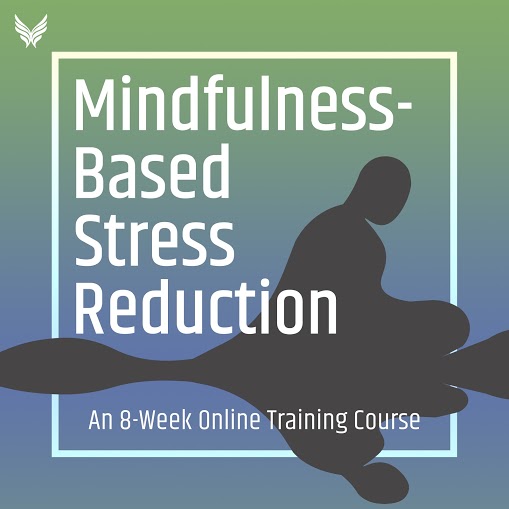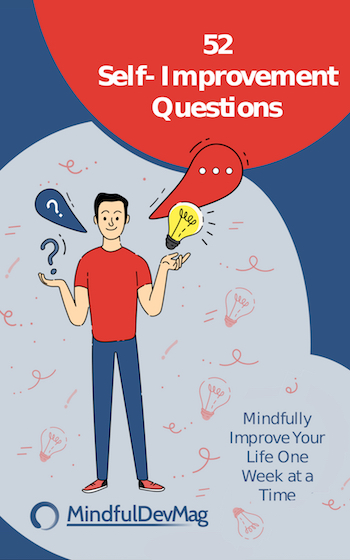How Mindfulness Helps Beat Procrastination
We all experience procrastination from time to time. This pesky trait stems from various causes, and most of us have tried countless methods to keep it from impacting our productivity. We all want to maximize our time and effort, so why is it so challenging to beat procrastination when it creeps in? If you’ve tried every method for staying organized and on task, but can’t seem to beat procrastination for good, you may want to consider employing the tools of mindfulness.
Motivation is seldom the cause of procrastination
Mindfulness is the act of staying focused on the present moment and guiding your mind back to the present each time it strays away. You return to the present, notice a thought, let it pass by without judgment, and return to the present once again.
We can define procrastination as the act of becoming distracted and delaying the tasks at hand. By procrastination, you are actually avoiding the present. When you compare mindfulness and procrastination this way, you can begin to see why mindfulness may help you curb this habit once and for all.
Mindfulness helps you beat procrastination by allowing you to pinpoint the root cause of your procrastination. The tools of mindfulness will allow you to cultivate nonjudgmental awareness surrounding your negative habits, and steer yourself toward more productive activities. With this approach, you will be able to get back on track more quickly each time you are tempted to procrastinate.
Regain Your Focus
Learn to get your focus back and accomplish more with this 7 Day Coaching Course.
Get Started
In practicing mindfulness, you learn to observe your own thoughts and tendencies. Using practices like meditation, focusing on your breath, or creating visual reminders to return to the present can help you train your brain to stay mindful. In observing yourself, you may notice some recurring patterns that lead you to procrastinate. Let’s explore some of the common causes of procrastination and how mindfulness can help beat them for good.
Feelings of Discomfort and How Mindfulness Can Help
Whether we are aware of it or not, we often procrastinate due to negative feelings or emotions. You are likely to procrastinate if you are anxious or overwhelmed by the task at hand. Conversely, you may procrastinate if you are underwhelmed, bored, or feel like you have too much time to do the work you need to do. These feelings are uncomfortable for our minds and bodies, so we resist feeling them by procrastinating. Normally the activity we choose to do while procrastinating brings about instant gratification that makes us feel better in the moment, but not finishing your daily tasks eventually leaves you feeling those negative feelings all over again.
Self-doubt and also the imposter syndrome are two major reasons why people procrastinate. Essentially, they both boil down to a lack of self-confidence and how we perceive ourselves. Work on those underlying causes, and procrastination will go. Read more on procrastination reasons and another way for beating procrastination.
Mindfulness can help this tendency by allowing you to observe yourself when you are tempted to procrastinate. Instead of escaping the present moment, you can ask yourself what uncomfortable feeling is causing you to want to procrastinate? You can label this feeling as boredom, stress, or any other negative feeling, and ask yourself what productive activity you can do to eliminate this feeling and get yourself back on track faster.
If you are stressed, maybe breaking down the project into smaller pieces would help. If you are bored, maybe you can add a challenging task to your to-do list. Any of these feelings could also benefit from a short walk or a few stretches to gain some mental clarity.
Fear of Failure and How Mindfulness Can Help
Fear of failure is another big reason why people procrastinate. When we are afraid of failing, we are really afraid of the pain that comes along with failure. We fear social ridicule or even the negative dialogue in our own heads that tells us we aren’t good enough. We procrastinate to delay the failure we see as inevitable, which only makes it more likely that we will not have enough time to finish a task successfully.
Failure is not the end. Without failures there are no wins.
Mindfulness can cut through this negative cycle by encouraging you to sit with the discomfort you are experiencing. You can observe the thoughts in your head and recognize that that is all they are— thoughts. These thoughts are not an accurate indication of your abilities, nor are they predictive of how the situation will pan out. Learning to observe your fears and release them will prevent you from becoming paralyzed in these moments. You can interrupt the negative thoughts with more positive ones about successes you have had in the past and faith in yourself to complete the project successfully.
Inability to Focus and How Mindfulness Can Help
Sometimes, procrastination comes down to an inability to focus. This is one of the more frustrating causes of procrastination, as you may want to work but cannot seem to get anything accomplished. Most of us work in environments that require mental effort, but not much physical movement. For this reason, we may forget that our bodies are a big piece of the puzzle when it comes to getting work done. An inability to focus could be caused by physical exhaustion, hunger, an uncomfortable workspace, distracting noises or lighting, or other pain you may experience in your body.
Fight noise with calming nature sounds or brain waves over at the ambient sound generator ZENmix.io.
Mindfulness reminds you to check-in, not only with your mind but your body as well. Taking a few moments to breathe and become aware of your body can help you learn useful information as to why you may be unable to focus. If you notice you are tired, you could consider trying a new evening routine to get more sleep. If you are distracted by your work environment, you can make adjustments to create a calmer space. A quick snack, a few stretches, or a glass of water may be all you need to get back on track.
Self-sabotage and How Mindfulness Can Help
You may be someone who self-sabotages by justifying your own procrastination. Maybe you think thoughts like,
“I’ll do it tomorrow,”
“I’ll be able to focus better later,”
or, “I’ll get to it after the weekend.”
There is a difference between establishing solid boundaries surrounding work, versus simply rationalizing your way into a procrastination session. You likely self-sabotage due to a few of the previously mentioned procrastination causes.
Uncomfortable feelings and fears convince you that you need to mentally escape, and your mind becomes the tool you need to help you justify that escape. However, it’s called self-sabotage for a reason, as this act in itself may be the reason you don’t finish a task on time.
The act of being mindful will draw your attention to these behaviors. You can cultivate awareness surrounding the urge to self-sabotage, and get curious about why these patterns come up for you.
As much as you desire to flee the discomfort you feel, staying present will actually help you get more joy out of even the most unpleasant tasks. Plus, training your mind to stay present when you feel the urge to self-sabotage will help you stay present for the parts of your workday that you do enjoy. This is an easy way to curb any negative feelings you have regarding your work, which will, in turn, decrease your urges to procrastinate.
Self-judgment and How Mindfulness Can Help
When we procrastinate, we judge ourselves. This judgment produces a feeling of shame, which causes emotional discomfort, and may cause us to procrastinate again. This pattern can develop in anyone. The more you follow the pattern, the more you train yourself to behave this way. Not only does this hinder your productivity, but it also harms your sense of confidence. When you have little faith in yourself to be productive or complete tasks on time, you are already setting yourself up for failure. You are setting yourself up to repeat this pattern indefinitely.
An important aspect of mindfulness is practicing an element of non-judgment. You simply return to the present moment, observe your thoughts, let them pass by without judging them, and offer yourself some acceptance as you return to the present again. Repeating this practice will disrupt negative patterns of judgment and shame. You can use mindfulness to rewrite your own mental patterns. Over time, this practice will help you learn to interrupt the urge to procrastinate as it arises. Offering yourself acceptance and compassion may seem pointless at first, but sometimes this small step is all that is needed to beat the shame and judgment that leads to procrastination.
Conclusion
Learning to check in and regulate your own negative feelings and emotions is key to beating a procrastination habit. Mindfulness teaches you to tune in and observe your thoughts without judgment. Through mindfulness, you will also learn to check in with your body and discover any root cause that may lead you to procrastinate. Removing elements of shame, judgment, and avoidant behavior, and introducing acceptance, presence, and small adjustments to your physical and mental space will help you beat your procrastination habit once and for all. Through developing a mindfulness practice, you’ll notice procrastination as it arises. You’ll notice pain or discomfort, let it pass by easily, and get back to focusing on the task at hand.
[bmw]
References







